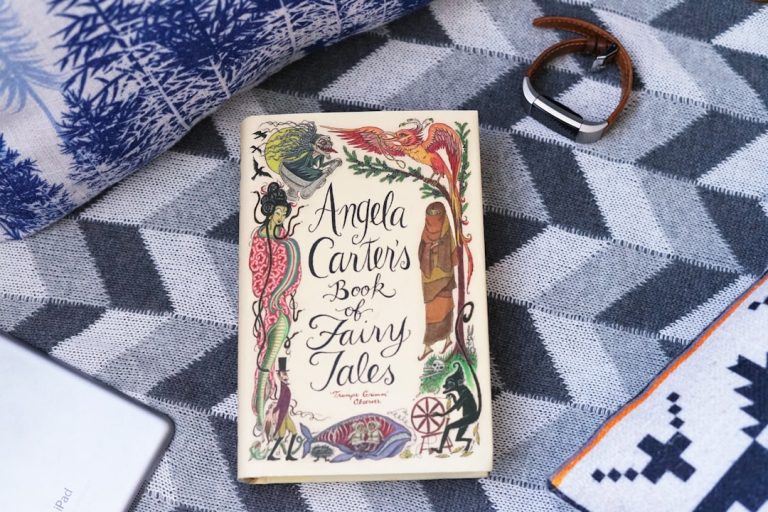
Pronunciation is a critical component of language learning, often serving as the bridge between comprehension and effective communication. For learners of all ages, mastering pronunciation can be a daunting task, as it requires not only an understanding of phonetics but also the ability to mimic the nuances of native speakers. One innovative and enjoyable method to enhance pronunciation skills is through the use of song lyrics.
Music has a unique ability to engage learners, making the process of acquiring language skills more enjoyable and less intimidating. By integrating song lyrics into pronunciation practice, learners can tap into the rhythm, melody, and emotional resonance of music, which can significantly aid in retention and recall. The use of song lyrics for pronunciation practice is not merely a whimsical idea; it is grounded in cognitive science.
The brain processes music and language in similar ways, which means that engaging with songs can reinforce language learning. The repetitive nature of lyrics, combined with their melodic structure, allows learners to internalize sounds and patterns more effectively than through traditional rote memorization techniques. This article will explore the multifaceted benefits of using song lyrics for pronunciation practice, provide guidance on selecting appropriate songs, and offer practical techniques to maximize the effectiveness of this approach.
Key Takeaways
- Using song lyrics for pronunciation practice can be a fun and effective way to improve language skills.
- Benefits of using song lyrics for pronunciation practice include improving rhythm, intonation, and stress patterns.
- When choosing songs for pronunciation practice, it’s important to select ones with clear and understandable lyrics.
- Techniques for using song lyrics to improve pronunciation include listening, repeating, and focusing on specific sounds.
- Common pronunciation challenges can be addressed through song lyrics practice, such as mastering difficult sounds and improving fluency.
Benefits of Using Song Lyrics for Pronunciation Practice
One of the most significant advantages of using song lyrics for pronunciation practice is the inherent enjoyment that music brings to the learning process. When learners engage with songs they love, they are more likely to remain motivated and committed to their studies. This emotional connection can lead to increased time spent practicing pronunciation, as learners are drawn to replay their favorite tracks.
Furthermore, the repetitive nature of songs allows for multiple exposures to specific sounds and phrases, reinforcing learning through repetition in a way that feels natural rather than forced. Additionally, songs often feature a variety of accents and dialects, exposing learners to different pronunciations and speech patterns. This exposure is particularly beneficial for those studying languages with diverse regional variations.
For instance, a learner studying English might listen to songs from artists in the United States, the United Kingdom, Australia, and Canada, each offering distinct pronunciations and slang. This variety not only broadens the learner’s understanding of the language but also equips them with the skills necessary to navigate real-world conversations with confidence.
Choosing the Right Songs for Pronunciation Practice

Selecting appropriate songs for pronunciation practice is crucial to ensuring that learners benefit from this method. Ideally, songs should feature clear vocals and straightforward lyrics that are easy to understand. Genres such as pop, folk, and acoustic often provide excellent options due to their emphasis on vocal clarity.
For example, artists like Adele or Ed Sheeran are known for their articulate singing styles, making their songs suitable for learners aiming to improve their pronunciation. Moreover, it is essential to consider the complexity of the lyrics.
Songs with repetitive choruses or verses can be particularly effective, as they allow learners to practice specific sounds multiple times without becoming overwhelmed. Additionally, songs that tell a story or convey relatable themes can enhance engagement, making learners more likely to invest time in practicing their pronunciation.
Techniques for Using Song Lyrics to Improve Pronunciation
| Technique | Description |
|---|---|
| Repetition | Repeating song lyrics multiple times to practice pronunciation. |
| Phonetic Transcription | Writing out the lyrics using phonetic symbols to help with pronunciation. |
| Listening and Mimicking | Listening to the song and mimicking the pronunciation of the lyrics. |
| Breaking Down Sounds | Focusing on specific sounds within the lyrics to improve pronunciation. |
To effectively utilize song lyrics for pronunciation practice, learners can employ several techniques that cater to different learning styles. One popular method is the “listen and repeat” technique, where learners listen to a line or phrase from a song and then attempt to mimic the pronunciation as closely as possible. This technique encourages active listening and helps learners become more attuned to the nuances of intonation and rhythm in spoken language.
Another effective approach is to analyze the lyrics while listening to the song. Learners can read along with the lyrics as they listen, paying close attention to how words are pronounced in context.
Additionally, learners can record themselves singing along or reciting the lyrics, allowing them to compare their pronunciation with that of the original artist. This self-assessment can be invaluable in identifying areas for improvement.
Common Pronunciation Challenges and How Song Lyrics Can Help
Language learners often face specific pronunciation challenges that can impede their ability to communicate effectively. For instance, English learners may struggle with vowel sounds that do not exist in their native languages or have difficulty distinguishing between similar-sounding consonants. Song lyrics can serve as a practical tool for addressing these challenges by providing context-rich examples of how sounds are used in natural speech.
For example, consider the English vowel sounds in words like “ship” and “sheep.” A learner may find it challenging to differentiate between these two sounds when speaking. By listening to songs that feature these words prominently—such as “Sheep” by Pink Floyd or “Ship” by The B-52s—learners can hear how native speakers articulate these sounds in context. Repeated exposure through song lyrics allows learners to practice these sounds in a fun and engaging way, ultimately leading to improved pronunciation.
Tips for Incorporating Song Lyrics Practice into Language Learning

Incorporating song lyrics into language learning requires a strategic approach to maximize effectiveness. One useful tip is to create a playlist of songs specifically chosen for pronunciation practice. This playlist can include a mix of genres and artists that feature clear vocals and relatable themes.
By curating a selection of songs that resonate with personal interests, learners are more likely to engage consistently with their practice. Another effective strategy is to set specific goals for each practice session. For instance, a learner might focus on mastering the pronunciation of a particular song over several days or weeks.
Breaking down the song into manageable sections—such as focusing on one verse or chorus at a time—can make the process less overwhelming and more achievable. Additionally, incorporating visual aids such as lyric videos or karaoke versions can enhance engagement and provide an interactive element to practice sessions.
Resources for Finding Song Lyrics for Pronunciation Practice
There are numerous resources available for learners seeking song lyrics for pronunciation practice. Websites such as Genius and AZLyrics offer extensive databases of song lyrics across various genres and languages. These platforms often provide annotations and explanations for specific lines or phrases, which can enhance understanding and context.
In addition to online lyric databases, many language learning apps now incorporate music into their curricula. Apps like FluentU use real-world videos—including music videos—to teach vocabulary and pronunciation through engaging content. These resources not only provide access to song lyrics but also offer interactive exercises that reinforce learning through context-rich examples.
How Song Lyrics Can Enhance Pronunciation Skills
The integration of song lyrics into pronunciation practice presents a dynamic approach to language learning that combines enjoyment with educational value. By leveraging the power of music, learners can enhance their pronunciation skills while developing a deeper connection with the language they are studying. The rhythmic patterns and emotional resonance found in songs create an immersive learning experience that traditional methods often lack.
As learners explore various techniques for using song lyrics—such as listening and repeating or analyzing lyrics—they will find themselves better equipped to tackle common pronunciation challenges. With careful selection of songs and strategic incorporation into study routines, song lyrics can become an invaluable tool in any language learner’s arsenal. Ultimately, this method not only fosters improved pronunciation but also cultivates a lifelong appreciation for music and its role in language acquisition.
If you’re interested in practicing pronunciation with song lyrics, you may also enjoy exploring the collection of song lyrics available on Sersea Ink. In addition to song lyrics, Sersea Ink offers a variety of resources for language learners, including books and other helpful tools. Check out their website at https://sersea.ink for more information on how to improve your language skills through music and literature.
FAQs
What are the benefits of practicing pronunciation with song lyrics?
Practicing pronunciation with song lyrics can help improve your accent, intonation, and overall fluency in a foreign language. It can also make language learning more enjoyable and engaging.
How can song lyrics help with pronunciation practice?
Song lyrics provide a natural rhythm and melody that can help learners mimic the sounds and intonation of a language. They also offer a fun and memorable way to practice pronunciation.
What are some tips for using song lyrics to practice pronunciation?
Some tips for using song lyrics to practice pronunciation include listening to the song multiple times, focusing on specific sounds or words, and singing along to the music to practice rhythm and intonation.
Are there any specific types of songs that are best for pronunciation practice?
Songs with clear and enunciated lyrics, as well as slower tempos, are often best for pronunciation practice. Additionally, songs with repetitive choruses or refrains can be helpful for practicing specific sounds or words.
Can practicing pronunciation with song lyrics help with language fluency?
Yes, practicing pronunciation with song lyrics can help improve overall language fluency by enhancing speaking and listening skills. It can also help learners feel more confident and comfortable using the language in real-life situations.



